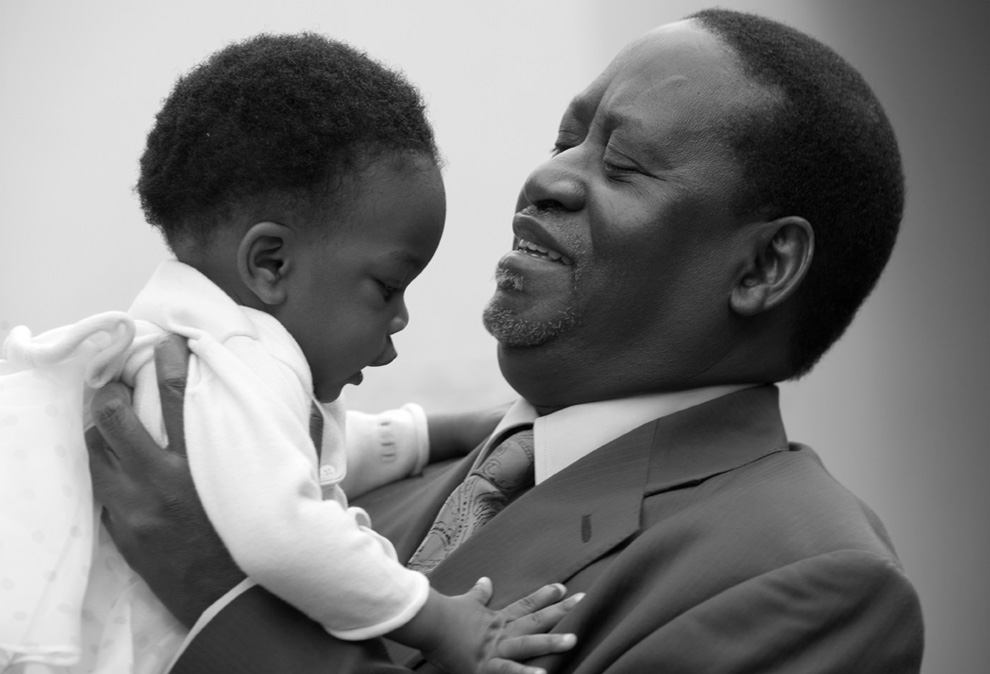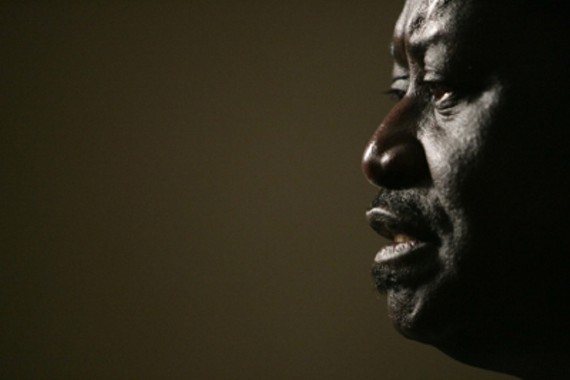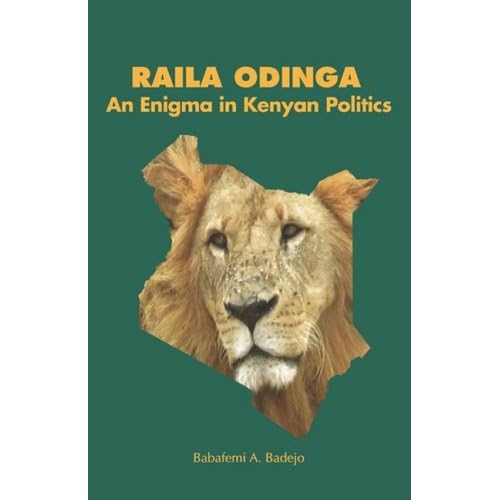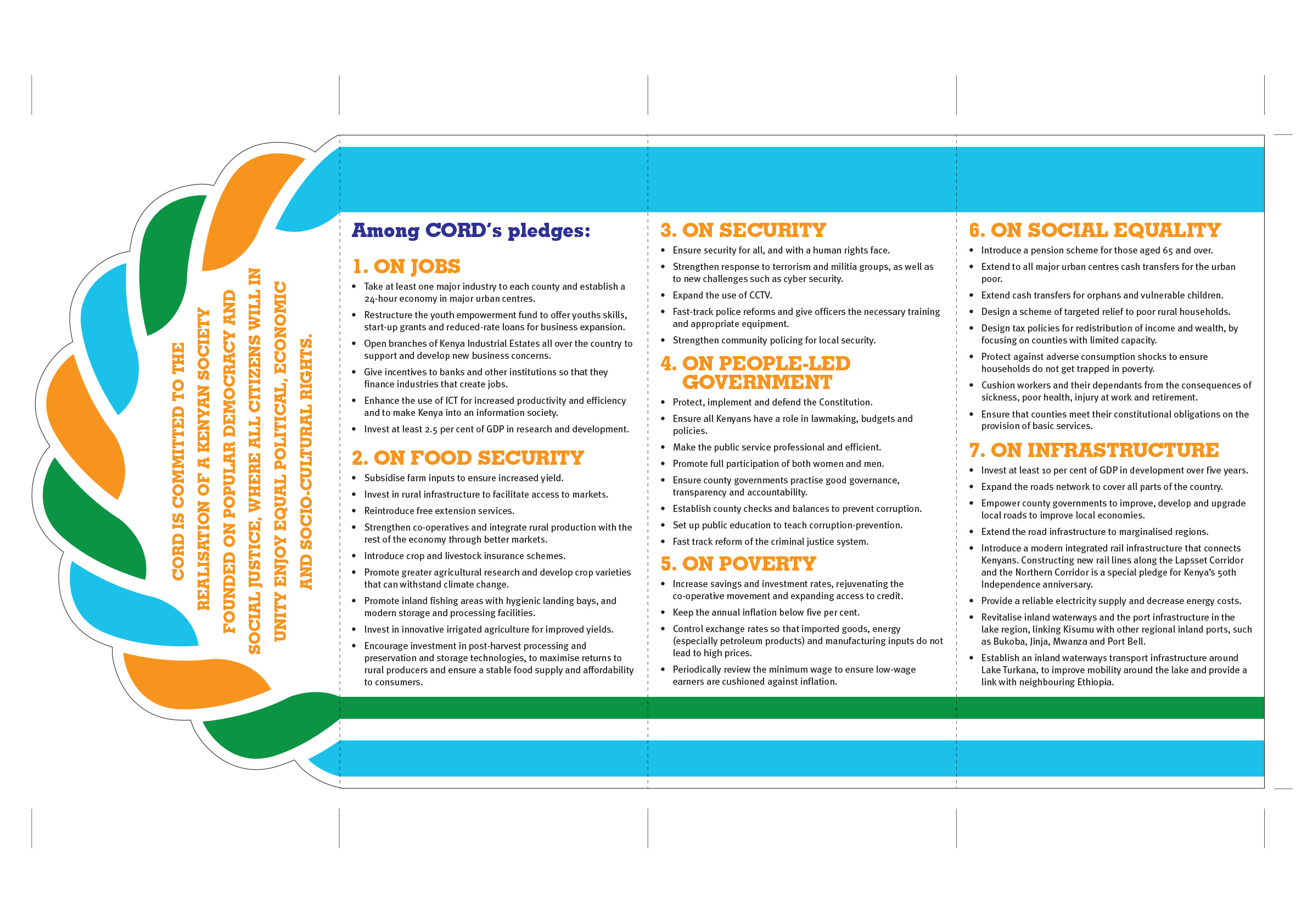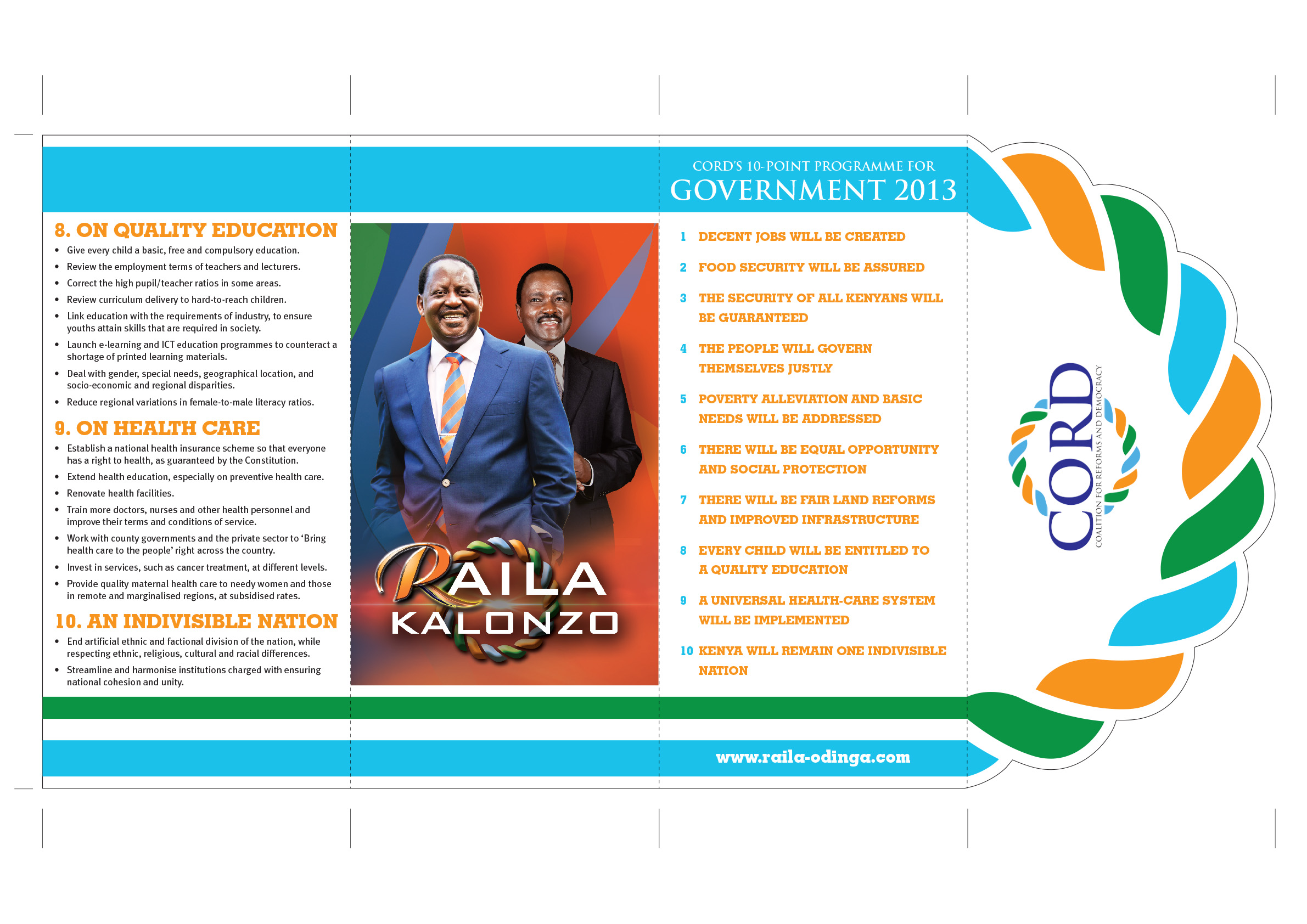Ab-Titchaz
JF-Expert Member
- Jan 30, 2008
- 14,631
- 4,225
Raila to launch presidential bid next week.

By Standard Reporter
KENYA: Prime Minister Raila Odinga is set to launch his presidential bid under the CORD Alliance on Wednesday, next week. This will, however, be preceded by a launch of the harmonised manifesto of CORD affiliate parties on Monday.
A dispatch from the Raila for President Secretariat also indicated that on the day of his presidential bid launch, the premier would officially hand in his nomination papers to the electoral commission.
The statement asked Kenyans to scrutinise the joint manifesto that brings together the aspirations of Wiper, Ford-Kenya, and ODM.
This comes as CORD has lined up a series of rallies in Rift Valley to woe supporters. The statement also said the premier has welcomed reports of presidential debates scheduled for February 11.
The second debate is slated for February 25.
"I welcome these television debates. I am really looking forward to engaging directly with my main opponent Uhuru Kenyatta and the other four aspirants," read the statement.
Raila said the debates would give Kenyans the opportunity to directly hear the issues the political parties and their candidates have lined up for them if elected.
"This will be a great opportunity for Kenyans to hear directly from the presidential candidates and determine who really has the ability, the experience, the vision, and policies that are required to change people's lives," it partly read.
Standard Digital News - Kenya : Raila to launch presidential bid next week
Dispatch:

By Standard Reporter
KENYA: Prime Minister Raila Odinga is set to launch his presidential bid under the CORD Alliance on Wednesday, next week. This will, however, be preceded by a launch of the harmonised manifesto of CORD affiliate parties on Monday.
A dispatch from the Raila for President Secretariat also indicated that on the day of his presidential bid launch, the premier would officially hand in his nomination papers to the electoral commission.
The statement asked Kenyans to scrutinise the joint manifesto that brings together the aspirations of Wiper, Ford-Kenya, and ODM.
This comes as CORD has lined up a series of rallies in Rift Valley to woe supporters. The statement also said the premier has welcomed reports of presidential debates scheduled for February 11.
The second debate is slated for February 25.
"I welcome these television debates. I am really looking forward to engaging directly with my main opponent Uhuru Kenyatta and the other four aspirants," read the statement.
Raila said the debates would give Kenyans the opportunity to directly hear the issues the political parties and their candidates have lined up for them if elected.
"This will be a great opportunity for Kenyans to hear directly from the presidential candidates and determine who really has the ability, the experience, the vision, and policies that are required to change people's lives," it partly read.
Standard Digital News - Kenya : Raila to launch presidential bid next week
Dispatch:
The Raila Odinga Presidential Campaign Secretariat wishes to announce that the eagerly-awaited official launch of Prime Minister Raila Odinga's presidential candidature under the Coalition for Reforms and Democracy (CORD)ticket will be held on Wednesday, 30th January, 2013, at the Uhuru Park, Nairobi.
On the same day, prior to the launch, Mr Odinga accompanied by his running mate, Vice President Kalonzo Musyoka, and CORD principal, Minister Moses Wetangula and other coalition luminaries; is scheduled to hand in his nomination papers to the Independent Electoral and Boundaries Commission (IEBC) at Anniversary Towers.
Monday, 28th January, 2013, will be another big day for CORD, when the coalition launches its harmonized manifesto. The ceremony is scheduled to be held at the Kenyatta International Conference Centre (KICC) from 11.00am.
You are kindly invited to cover these landmark events.
DATED AT NAIROBI THIS FRIDAY THE 25TH DAY OF JANUARY, 2013.
ELIUD OWALO
CHIEF CAMPAIGN MANAGER AND HEAD OF THE RAILA ODINGA PRESIDENTIAL CAMPAIGN SECRETARIAT
TEL: 020 2712496/97/98
CELL: 0711 649 066/0733 766 204
EMAIL:eliudowalo@gmail.com
On the same day, prior to the launch, Mr Odinga accompanied by his running mate, Vice President Kalonzo Musyoka, and CORD principal, Minister Moses Wetangula and other coalition luminaries; is scheduled to hand in his nomination papers to the Independent Electoral and Boundaries Commission (IEBC) at Anniversary Towers.
Monday, 28th January, 2013, will be another big day for CORD, when the coalition launches its harmonized manifesto. The ceremony is scheduled to be held at the Kenyatta International Conference Centre (KICC) from 11.00am.
You are kindly invited to cover these landmark events.
DATED AT NAIROBI THIS FRIDAY THE 25TH DAY OF JANUARY, 2013.
ELIUD OWALO
CHIEF CAMPAIGN MANAGER AND HEAD OF THE RAILA ODINGA PRESIDENTIAL CAMPAIGN SECRETARIAT
TEL: 020 2712496/97/98
CELL: 0711 649 066/0733 766 204
EMAIL:eliudowalo@gmail.com



